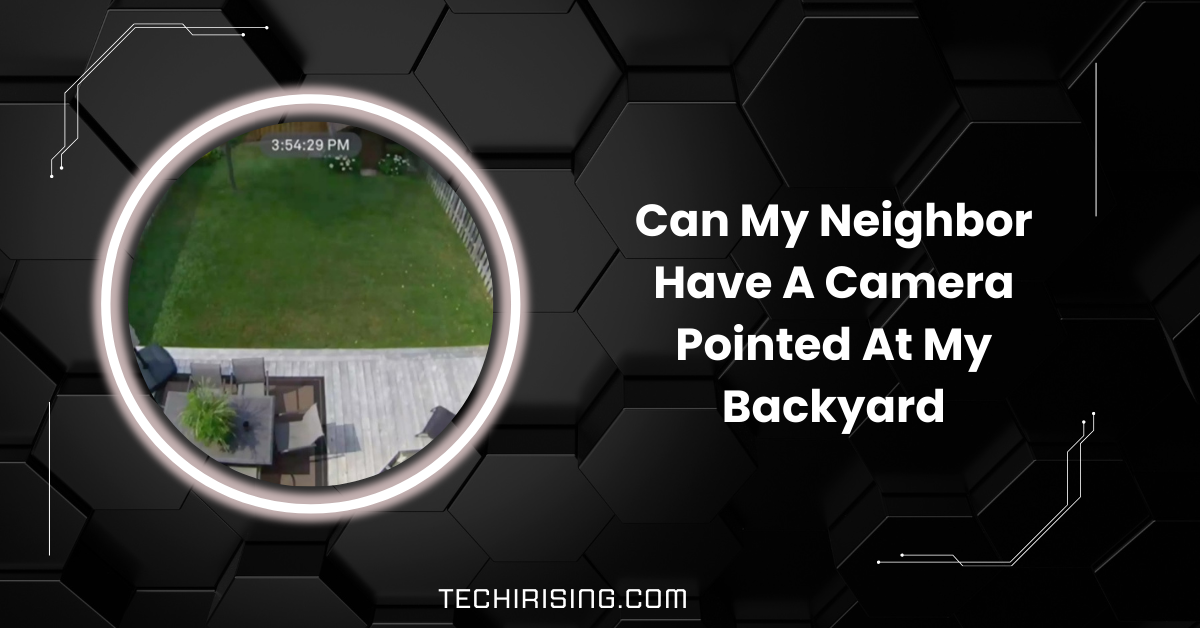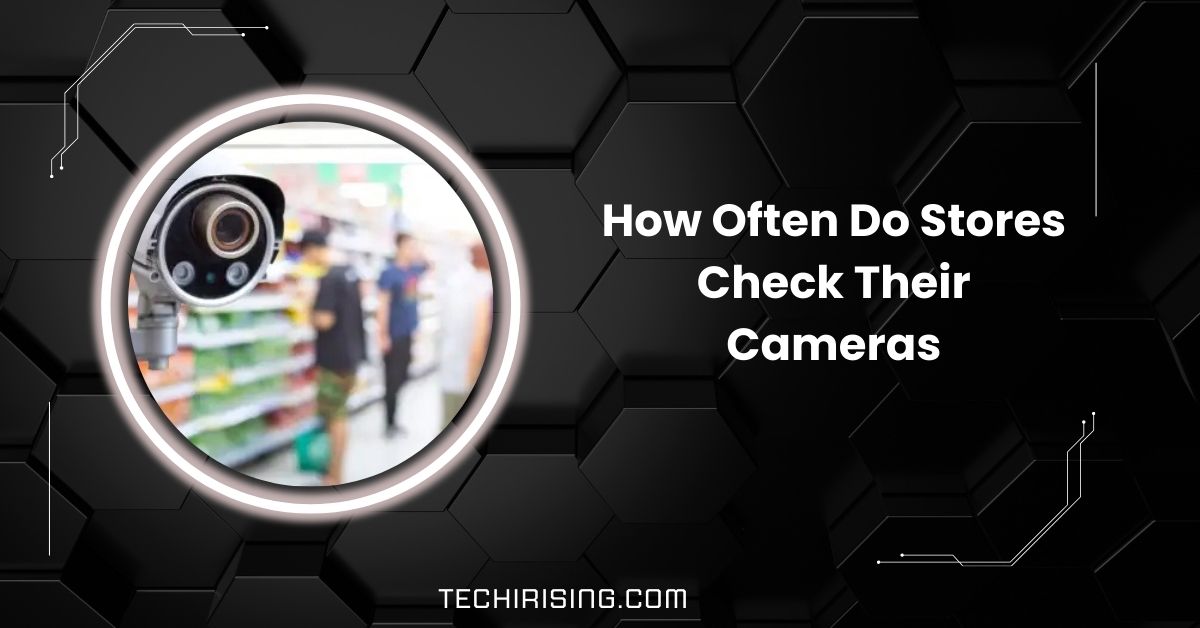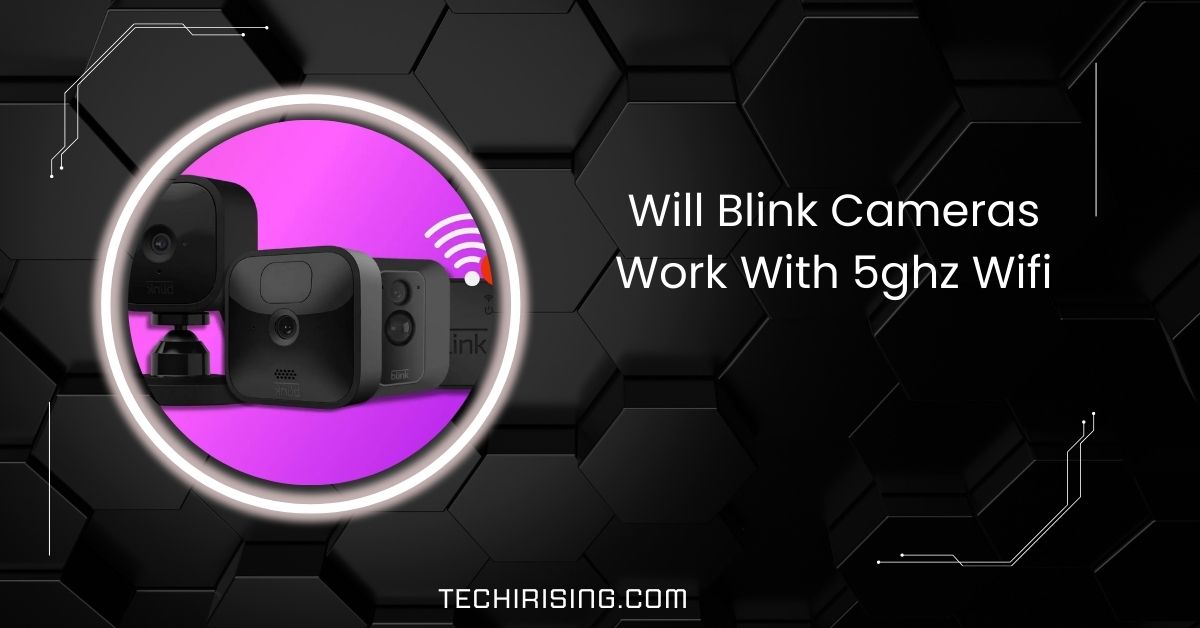In today’s world, security cameras are everywhere, helping people protect their homes and property. However, a neighbor pointing a camera at your backyard or home can raise serious privacy concerns.
Neighbors can legally install security cameras pointing at your backyard if they don’t invade private areas like your home or enclosed spaces. Visual recording is generally permitted if the camera is on their property.
In this article, we’ll explore common questions and scenarios involving neighbors’ security cameras, legal rights, and practical steps you can take to protect your space.
Legality of Neighbor’s Security Camera Pointing at Your Backyard
The legality of your neighbor’s camera pointing at your backyard depends on where you live and the situation. Most laws allow people to install cameras for security, but they shouldn’t invade private spaces.
For example, if your backyard is open and visible to the public, it’s usually legal to record it. However, if the camera is aimed at private areas, like your enclosed backyard or bedroom windows, it could break privacy laws.
It’s best to check your local rules and see if your neighbor’s camera crosses legal boundaries. Talking to your neighbor or consulting a lawyer can help clarify this.
When Is It Illegal for a Neighbor to Have a Camera Pointed at Your Backyard?
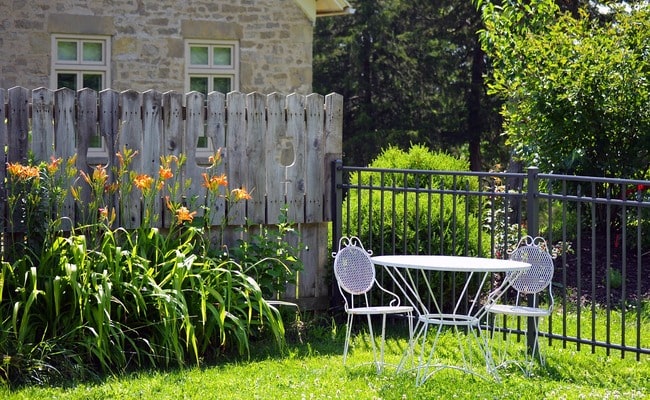
It’s illegal for a neighbor to point a camera at your backyard if it invades your privacy or breaks specific laws.
For example, if your backyard is fenced and not visible to others, filming it could violate your privacy rights. It’s also against the law if their camera records areas like bedrooms or bathrooms.
Audio recording without your consent can also be illegal in many places, even if video recording is allowed.
If the footage is used to harass or harm you, it’s another legal violation. Understanding local laws can help determine if your neighbor’s actions are unlawful.
Steps to Take If Your Neighbor’s Camera Is Pointed at Your Backyard
1. Talk to Your Neighbor
Start by having a calm and friendly conversation. Share your concerns and ask if they can adjust the camera’s angle to avoid pointing at your backyard. Many people aren’t aware they’re making someone uncomfortable, which can solve the issue quickly.
2. Build Privacy Barriers
If the camera still bothers you, consider adding privacy barriers like a tall fence, trees, or shrubs. You can also use outdoor blinds or privacy screens. These not only block the camera’s view but also add to the beauty and security of your space.
3. Research Local Laws
Look into privacy and security camera laws in your area. Some laws allow cameras to record public spaces but restrict them from capturing private areas. Knowing your legal rights can help you take the right steps.
Also Read: Do Dash Cams Record When Your Car is Not Running?
4. Seek Legal Advice
If the issue continues, consult a lawyer. They can help you understand if your privacy is violated and what legal options you have to protect yourself.
5. Contact Authorities
If you feel unsafe or if the camera is used for harassment or stalking, don’t hesitate to involve the authorities. Please provide them with details and evidence, like photos of the camera or recordings of any threatening behavior.
6. Document Everything
Keep records of your interactions with your neighbor, photos of the camera, and any communication. This information can be helpful if legal action or mediation is required later.
Considerations When Installing Your Own Security Cameras
- Respect Privacy: Point your cameras toward your property and avoid aiming at your neighbor’s house, backyard, or windows. This shows respect and avoids conflicts.
- Know the Laws: Research local laws about recording video and audio. In many places, audio recording without permission is illegal, even on your property.
- Choose the Right Placement: Install cameras in places that cover your home’s entrances, driveways, or outdoor spaces, but keep them away from areas that may invade others’ privacy.
- Inform Your Neighbors: Let your neighbors know about the cameras, especially if they might be concerned. Clear communication helps avoid misunderstandings.
- Use Signs: Consider adding a sign that says cameras are in use. It can act as a deterrent for intruders while letting others know they are being recorded.
- Check Camera Features: Some cameras have zoom or audio capabilities. Use these features responsibly to avoid capturing things outside your property.
- Secure Your Footage: Ensure your camera system is secure to protect the footage from hacking or misuse. Use strong passwords and encryption if available.
- Review Camera Angles: Regularly check where your cameras are pointing to ensure they haven’t shifted or started recording areas they shouldn’t.
What Does the Law Say About Neighbor’s Cameras?
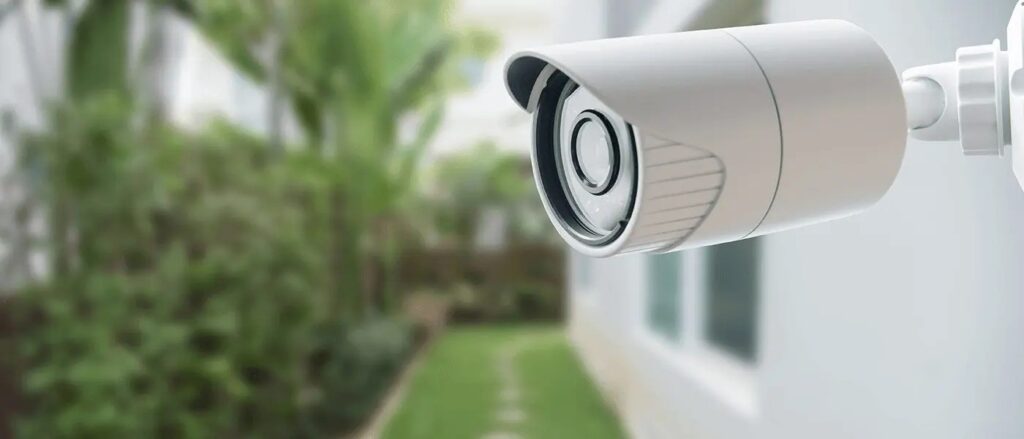
The law generally allows neighbors to install security cameras on their property for safety. They can record areas visible to the public, like driveways or front yards.
However, they cannot point cameras at private spaces like your backyard, bedroom, or bathroom where you expect privacy.
Some laws also restrict audio recording without permission. Rules vary by location, so check your local laws to understand your rights. If unsure, seek legal advice to know what’s allowed.
Is Your Privacy Being Violated?
Your privacy might be violated if a neighbor’s camera points at private areas like your backyard or inside your home.
If the camera captures activities where you expect privacy, such as swimming or relaxing in a fenced yard, this could be against privacy laws.
Audio recording without consent may also break the law. If the footage is misused to harass or harm you, it’s a clear violation. Talk to your neighbor first, but consult a lawyer if the problem continues.
Scenarios Where a Neighbor’s Camera Becomes Illegal
- Recording Private Spaces: If a neighbor’s camera is pointed at private areas like your backyard, bedroom, or bathroom, it may violate privacy laws.
- Audio Recording Without Consent: Many places require permission to record. If their camera captures conversations without consent, it could be illegal.
- Using Footage Maliciously: If they use recorded footage to harass, threaten, or embarrass you, this is unlawful behavior.
- Invasion of Privacy: If the camera captures activities where you reasonably expect privacy, it’s likely against the law.
Must Read: Can I Put Cameras In My House During A Divorce – Guidance!
How to Protect Your Backyard Privacy
- Install a Privacy Fence: Put up a tall fence around your backyard to block the view from your neighbor’s camera. A solid fence provides privacy and helps prevent unwanted surveillance.
- Plant Trees or Shrubs: Planting tall trees or dense bushes can create a natural barrier, keeping the camera from seeing into your backyard.
- Use Privacy Screens: Consider adding privacy screens, like outdoor curtains or lattice panels, to areas where you want extra protection.
- Rearrange Outdoor Furniture: If possible, move outdoor furniture or activities away from the camera’s line of sight.
- Install Motion Sensors: Set up motion-activated lights or alarms around your yard. This can deter unwanted attention and signal if someone is intruding.
Tips for Avoiding Neighbor Disputes Over Cameras
- Communicate Openly: Talk to your neighbor politely if you’re concerned about a camera. They may not know it’s causing an issue, and a simple conversation can solve the problem.
- Respect Boundaries: Remember not to point your cameras at your neighbor’s property when installing them. This shows respect and reduces the chance of disputes.
- Install Privacy Barriers: Use fences, trees, or screens to buffer your backyard and your neighbor’s cameras. This can help keep everyone’s privacy intact.
- Be Transparent: Let your neighbors know if you’re setting up cameras. Transparency can help avoid misunderstandings.
- Consider Mediation: If a dispute arises, consider using a mediator. A neutral third party can help resolve the issue without involving legal action.
Neighbor Has Camera Pointed At My Backyard
If your neighbor has a camera pointed at your backyard, it’s important to consider your privacy rights. If the camera records areas where you expect privacy, like your fenced yard, it could violate privacy. Talking to your neighbor or seeking legal advice can help.
Can My Neighbor Record Me On My Property
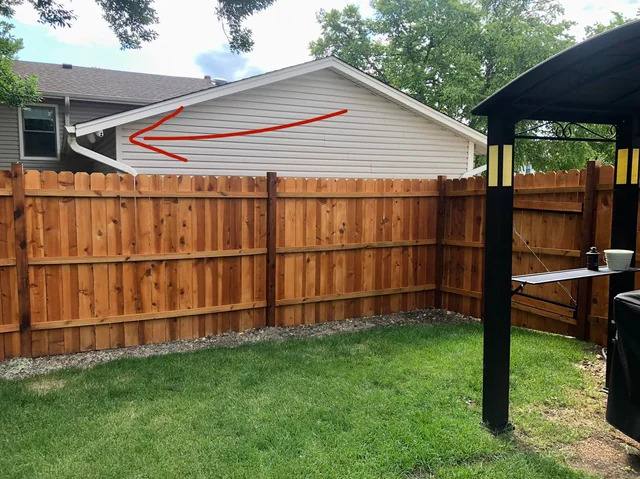
No, your neighbor cannot record you on your property without your consent. They can only record areas visible from public spaces.
Depending on local laws, if their camera records private areas like your backyard or windows, this could violate your privacy rights.
How To Block Neighbor’s Security Camera
You can build a tall fence, plant trees, or use privacy screens to block your neighbor’s security camera. You can also arrange outdoor furniture or add protective barriers like curtains or lattice panels to block the camera’s line of sight into your property.
What To Do If Your Neighbor Has A Camera Pointed At My House
Talk to them politely if your neighbor’s camera is pointed at your house. Express your concern and ask if they can adjust the camera’s angle. If that doesn’t work, look into local privacy laws or consult a lawyer if your privacy is violated.
Neighbor Has Camera Pointed At My Apartment Door
If your neighbor has a camera aimed at your apartment door, it may be a privacy concern. In many places, cameras shouldn’t point at private areas. Speak to your neighbor about the issue, or consult a lawyer to understand if your rights are violated.
Can A Neighbor Have A Camera Pointed At My House In Ohio
In Ohio, a neighbor can have a camera pointed at your house if it captures public areas. However, if it records private spaces like your backyard or windows, it may violate privacy laws. Check with a lawyer to understand specific regulations in your area.
You Should Know: Can I Put A Camera On A Utility Pole – All You Need To Know
Can A Neighbor Have A Camera Pointed At My House In Florida
In Florida, it’s legal for a neighbor to install a security camera that captures public spaces, but it can’t record private areas like your backyard or windows. If you feel your privacy is being invaded, consult a lawyer or local authorities to protect your rights.
FAQs
1. Is It Illegal For Neighbors To Have Cameras Pointed At Your House?
It’s not illegal if the camera records public areas. However, if it captures private spaces, it might violate privacy laws.
2. How Can I Stop My Neighbor’s Camera From Pointing At My House?
You can speak with your neighbor, install privacy barriers like fences, or rearrange your outdoor space to block the view.
3. Can You Record Neighbors’ Backyards?
You can record areas visible from public spaces but not private, fenced backyards, as this could violate privacy laws.
4. Can My Neighbor Take Pictures Of Me In My Backyard?
Your neighbor shouldn’t take pictures if you’re in a private, enclosed space. It may violate privacy rights in some areas.
5. Do I Have A Right To Privacy In My Backyard?
Yes, if your backyard is private and enclosed, you have a right to privacy. Cameras should respect that.
6. Is Your Backyard Considered Public?
A backyard is private unless it’s visible to the public. If it’s enclosed, it is generally considered a private space.
7. How To Disable Neighbors Ring Camera?
You cannot legally disable your neighbor’s camera. Instead, discuss your concerns with them or consider privacy barriers.
8. Is It Legal To Record Someone Else’s Property?
Recording someone’s property without permission is often illegal, especially in private areas. Always check local privacy laws.
Conclusion
In conclusion, neighbors can legally install security cameras but must respect privacy boundaries. If a camera invades your private space, such as your backyard, addressing the issue through communication or legal action is important.







